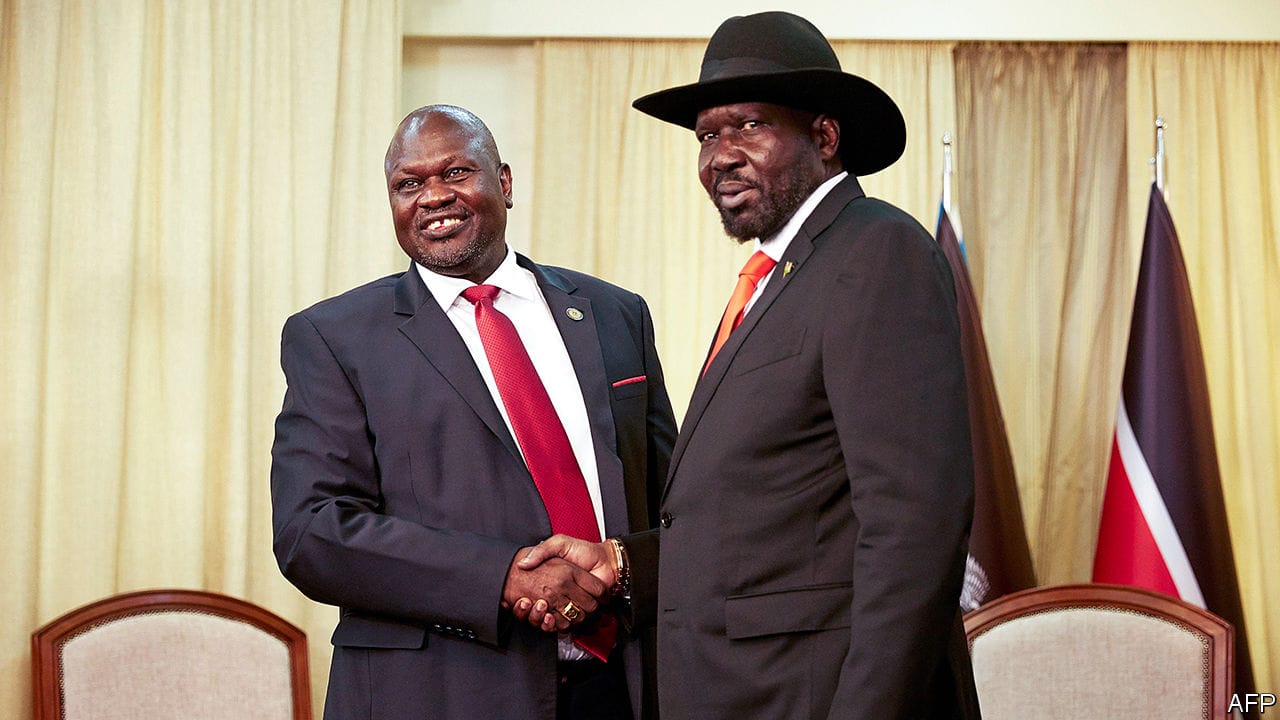- by MAJDAL SHAMS
- 07 28, 2024
-

-
-
Loading

Loading


ONCE FETED as liberation heroes, South Sudan’s ageing leaders are now better known for fighting each other and failing to make up. The country won independence from Sudan in 2011, after a referendum, and plunged into civil war two years later. Since then, President Salva Kiir and his former deputy turned nemesis, Riek Machar, have struck no fewer than 12 agreements, none of which brought lasting peace. On February 22nd the two sides are supposed to form an interim government of national unity—nine months and two missed deadlines behind schedule. Many observers worry it will be Groundhog Day for South Sudan. But as the deadline approaches there are tentative signs that this time it might not.Mr Kiir and Mr Machar (pictured on next page; Mr Kiir in a hat) both belonged to the Sudan People’s Liberation Movement, the political arm of the rebel army that fought for independence. Rivalries between the two men and their respective tribes—Dinkas and Nuers—have roiled the country for years. A peace deal signed in 2015 saw the return of Mr Machar to the capital, Juba, to take up his post as vice-president in a coalition government. But in 2016 fighting erupted again and Mr Machar fled. It has led to hundreds of thousands of deaths and the flight of more than a third of the population.